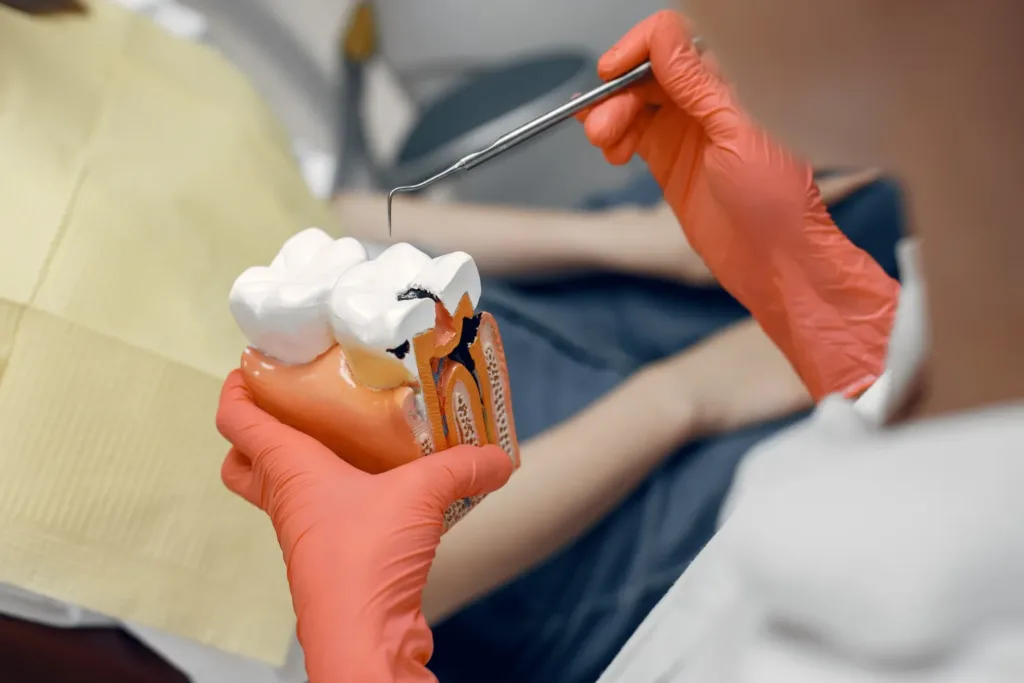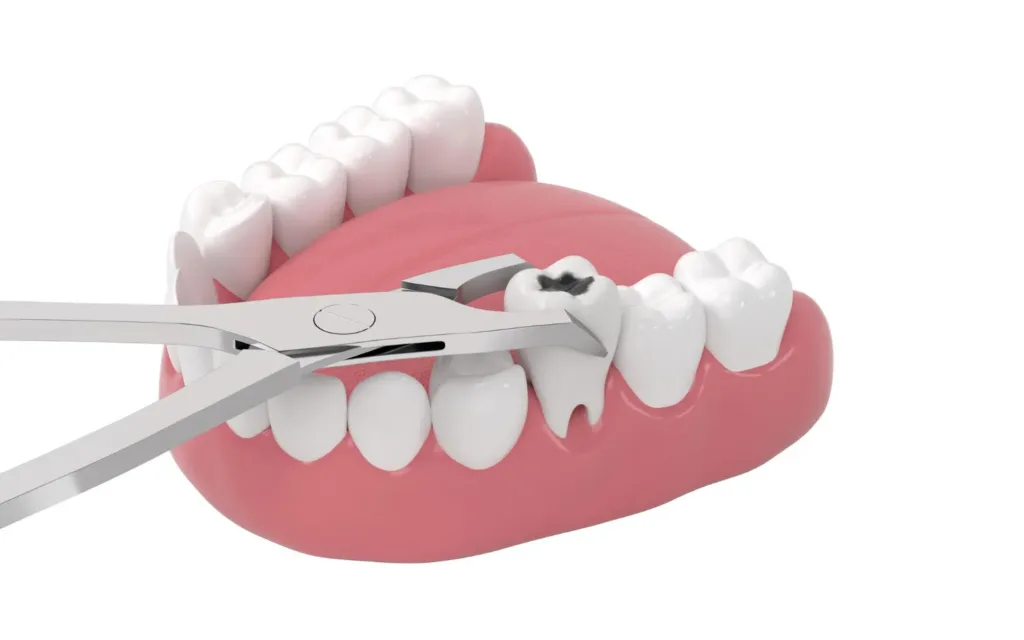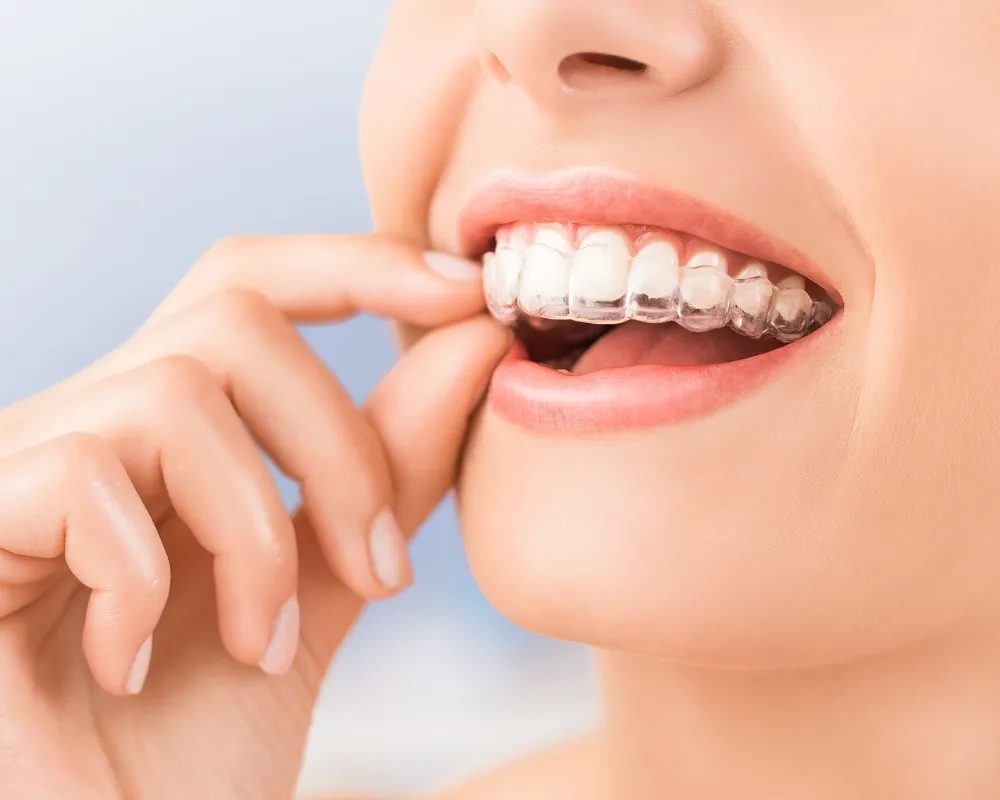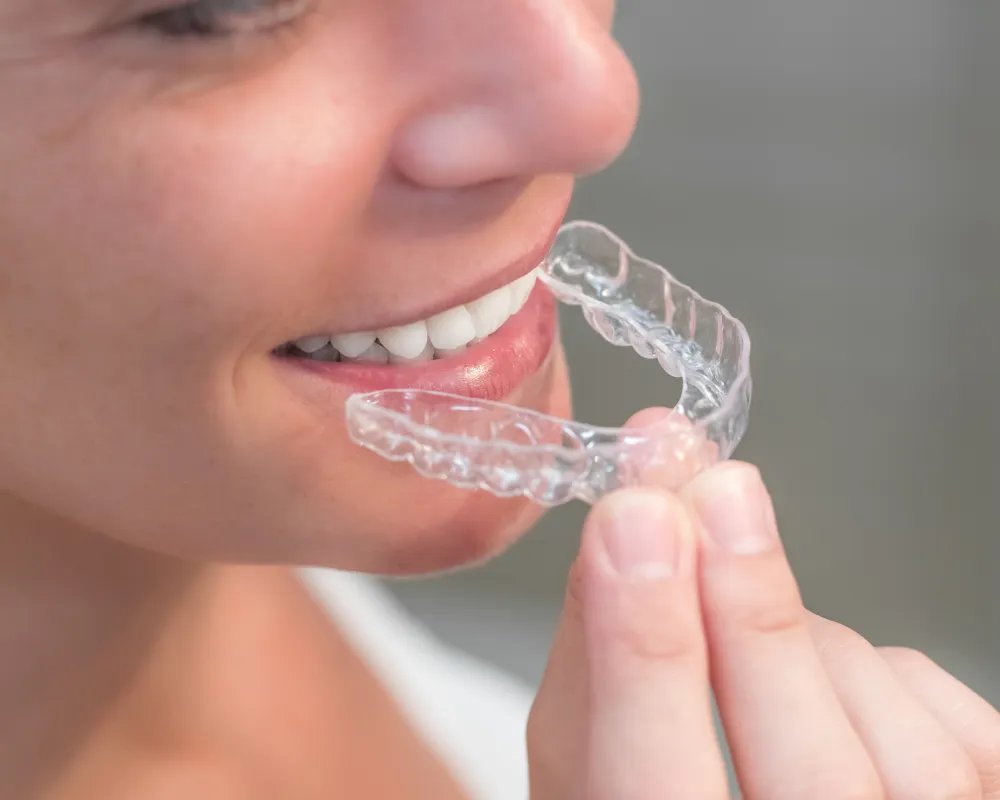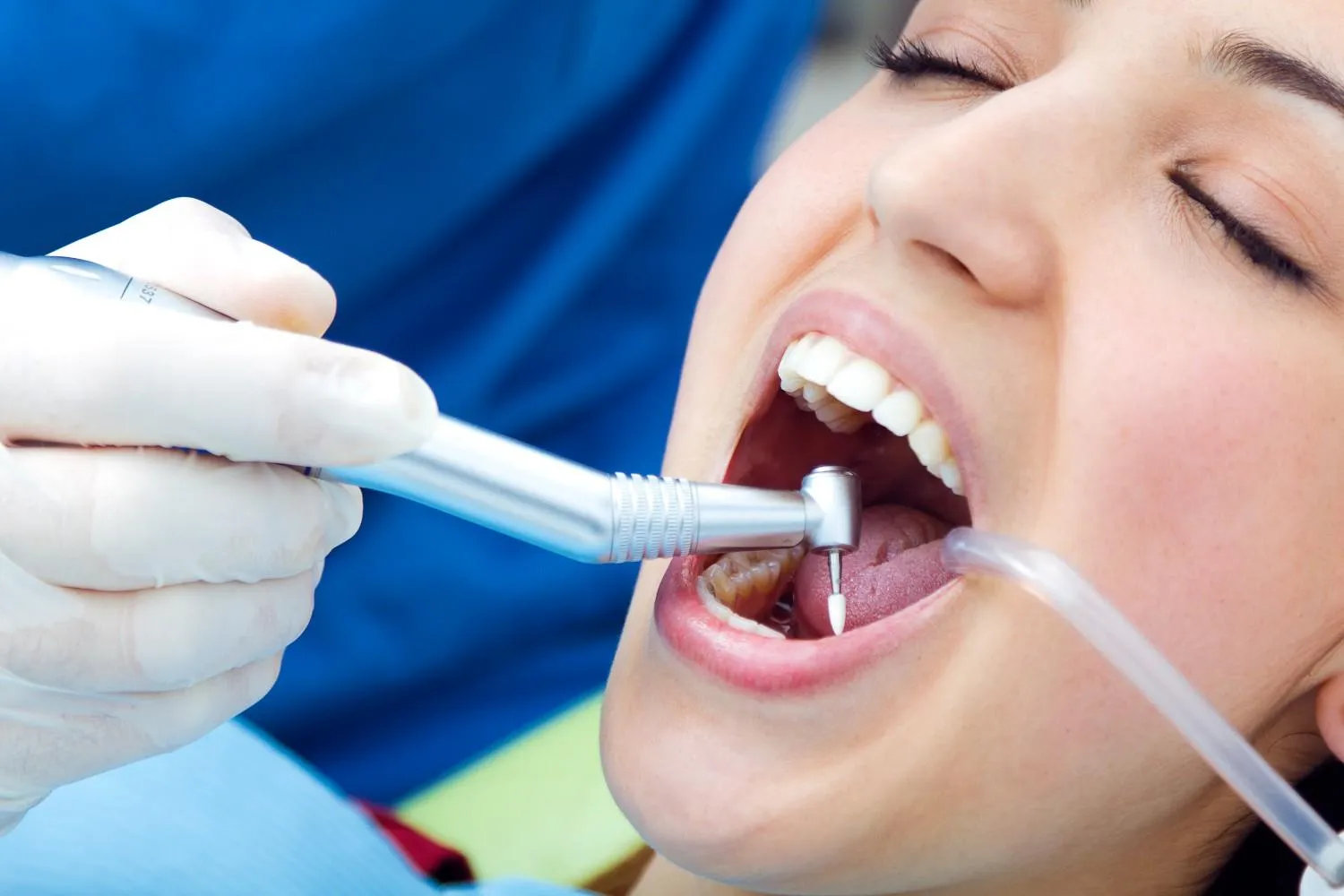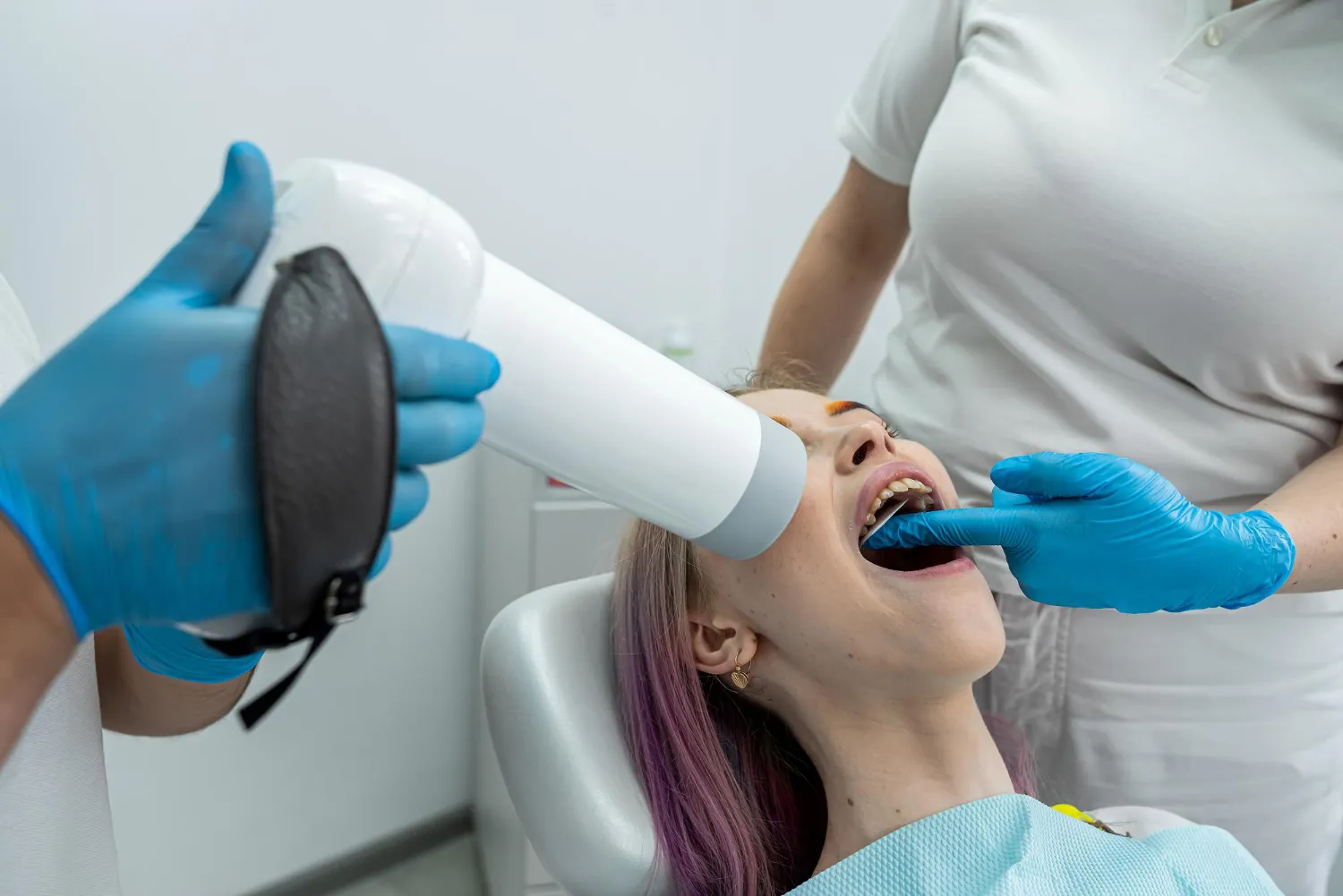
Maintaining good dental health is essential not only for a radiant smile but also for overall well-being. Our oral health impacts various aspects of our lives, from our ability to eat comfortably to our confidence in social interactions. In this blog post, we‘ll delve into three common dental problems that can significantly affect oral health if left untreated.
Cavities
Cavities, also known as dental caries, are small holes or openings that develop in the hard surface of the teeth. When we eat, bacteria in the mouth feed on the sugars from food and produce acids. These acids, along with food particles and saliva, form plaque—a sticky film that adheres to the teeth. Over time, the acids in plaque dissolve the enamel, the outer layer of the teeth, creating cavities. If left untreated, cavities can progress deeper into the tooth, affecting the inner layers and leading to pain, infection, and potential tooth loss.
Causes of Cavities
Here’s how your habits and diet affect your dental health: poor oral hygiene, sugary foods, and acidic drinks can lead to cavities and weaken your teeth over time.
Poor Oral Hygiene
Poor oral hygiene is one of the primary causes of cavities. When you don’t brush and floss enough, plaque builds up on your teeth. Plaque is a sticky mix of bacteria, food, and spit. If you don’t clean plaque away often, it can wear down your tooth’s outer layer and cause cavities.
Sugary Foods
Eating sugary foods and drinks can really up your chances of getting cavities. Here’s how: When you munch on sweets or gulp down sugary drinks, bacteria in your mouth go to town on that sugar. As a result, they release acids, which go on the attack against your tooth enamel. This weakens your enamel, making it easier for cavities to form. And those tasty treats like candies, sodas, and sweets? They’re like a buffet for those cavity-causing bacteria, giving them all the fuel they need to wreak havoc on your teeth. So, cutting back on those sugary snacks and drinks can go a long way in protecting your pearly whites from decay.
Acidic Drinks
Drinks like sodas, fruit juices, and energy drinks aren’t great for your teeth. They have acids that can wear away the outer layer of your teeth, making it easier for cavities to happen. Plus, if you drink these acidic beverages a lot, your mouth might not make enough saliva. Saliva helps neutralize acids and build back up your tooth enamel. So, when you drink acidic stuff often, your teeth can get weaker and more prone to cavities. It’s a good idea to limit how much of these drinks you have and rinse your mouth with water afterwards to help protect your teeth.
Prevention Tips
To prevent cavities, brush your teeth twice a day with fluoride toothpaste, and floss daily to remove plaque and food particles. Limit sugary and acidic foods and drinks, and rinse your mouth with water after consuming them. Visit your dentist regularly for check-ups and professional cleanings to catch any cavities early. Consider using dental sealants, thin plastic coatings applied to the chewing surfaces of molars, to protect them from decay. Lastly, consider fluoride treatments, which can strengthen tooth enamel and help prevent cavities, especially if you’re at higher risk due to factors like dry mouth or a history of cavities.
Gum Disease
Gum disease, also known as periodontal disease, is a common condition that affects the tissues surrounding the teeth. It begins with inflammation of the gums, known as gingivitis, which can progress to periodontitis if left untreated. The primary cause of gum disease is the buildup of plaque, a sticky film of bacteria, on the teeth and along the gumline. Factors such as poor oral hygiene, smoking, hormonal changes, diabetes, and certain medications can increase the risk of developing gum disease. Symptoms may include swollen or bleeding gums, bad breath, receding gums, and loose teeth.
Causes of Gum Diseases
Poor oral hygiene, smoking, and certain medical conditions significantly contribute to gum disease. Let’s explore how these factors affect gum health and what you can do to prevent gum disease.
Poor Oral Hygiene
One of the primary causes of gum disease is inadequate oral hygiene. When proper brushing and flossing techniques are not followed, plaque accumulates along the gumline. This plaque harbors bacteria, which can irritate and inflame the gums, leading to the early stages of gum disease known as gingivitis. Without proper removal, plaque hardens into tartar, further exacerbating the condition and increasing the risk of periodontitis.
Smoking
Tobacco use, particularly smoking, is a significant risk factor for gum disease. Smoking weakens the immune system’s response to bacterial infection, making it harder for the body to fight off gum disease. Additionally, smoking reduces blood flow to the gums, impeding their ability to heal and repair damage caused by bacteria.
Certain Medical Conditions
Various medical conditions can also contribute to the development or progression of gum disease. These include diabetes, which affects the body’s ability to regulate blood sugar levels and increases susceptibility to infections, including gum disease. Hormonal changes during pregnancy and menopause can also make gums more sensitive and prone to inflammation.
Prevention Tips
To prevent gum disease, maintain good oral hygiene by brushing your teeth twice daily with fluoride toothpaste and flossing daily to remove plaque buildup. Attend regular dental check-ups and cleanings to catch any signs of gum disease early. Avoid smoking or using tobacco products, as they significantly increase the risk of gum disease. Eat a balanced diet rich in fruits, vegetables, and whole grains, while limiting sugary snacks and drinks. Manage conditions such as diabetes effectively, as they can exacerbate gum disease. Lastly, consider using mouthwash or dental products containing fluoride to help control plaque and maintain gum health.
Tooth Sensitivity
Tooth sensitivity happens when teeth hurt with hot or cold foods, sweets, acidic foods, or cold air. It occurs because the enamel layer wears away or the gums shrink, showing the dentin layer underneath. Dentin has tiny tubes that reach the nerves in the tooth pulp, making teeth more sensitive. Things that are normally okay can hurt sensitive teeth. Causes include brushing too hard, tooth decay, gum disease, and some dental treatments like whitening. Knowing what triggers sensitivity helps people avoid pain and keep their teeth healthy.
Causes of Tooth Sensitivity
Now we’ll discuss common causes of dental sensitivity: enamel erosion, gum recession, and tooth decay and how each affects your teeth and what you can do to prevent discomfort.
Enamel Erosion
Enamel erosion happens when the tough outer layer of teeth, called enamel, wears away. This can occur because of acidic foods and drinks, brushing too hard, or acid reflux. When enamel wears away, it exposes the sensitive layer underneath called dentin. This makes teeth more sensitive to hot, cold, sweet, and acidic things.
Gum Recession
Gum recession occurs when gums move away from teeth, showing the roots. It can happen due to gum disease, brushing too hard, or genetics. Exposed roots don’t have enamel, so they’re sensitive and can hurt easily.
Tooth Decay
Tooth decay, also known as cavities or dental caries, is a common cause of tooth sensitivity. Decay occurs when bacteria in the mouth produce acids that erode the tooth’s enamel and create holes in the tooth structure. These cavities expose the dentin layer, leading to sensitivity to various stimuli. Proper oral hygiene, including brushing, flossing, and regular dental check-ups, is essential in preventing tooth decay and associated sensitivity.
Last Word
Taking care of your dental health is crucial for a happy, pain-free smile. Understanding and dealing with common dental issues like cavities, gum disease, and tooth sensitivity keeps your mouth healthy and avoids pain. Remember to see Brooklin Dental Centre for check-ups to ensure your teeth and gums stay well. Regular dentist visits catch and treat problems early, even ones you might not notice. Dentists clean your teeth professionally to prevent cavities and gum disease. Plus, they give personalized advice on brushing, flossing, and lifestyle to maintain a healthy smile. Don’t wait for trouble—make seeing your dentist a priority to keep your teeth in top shape for a long time.

